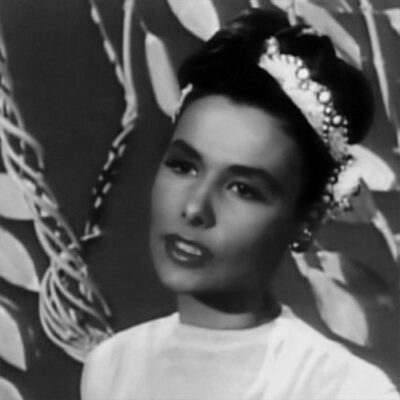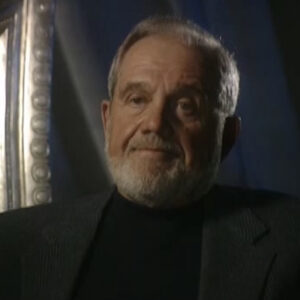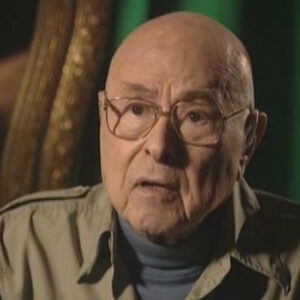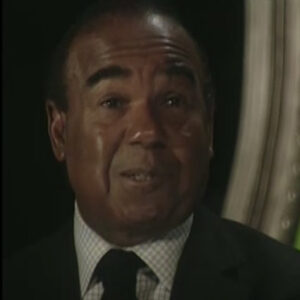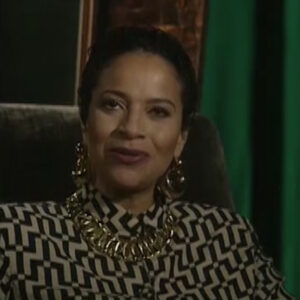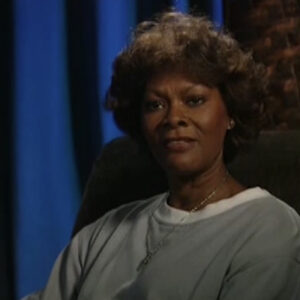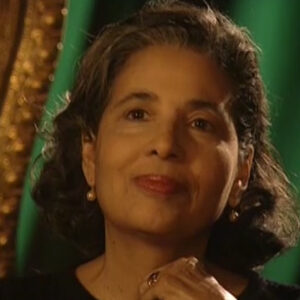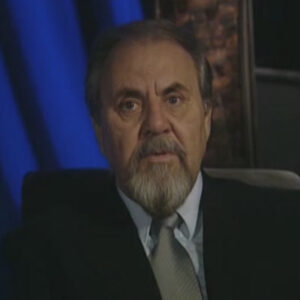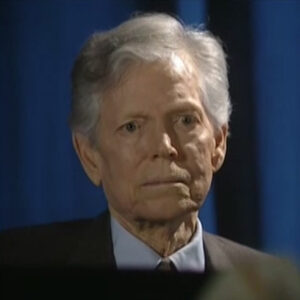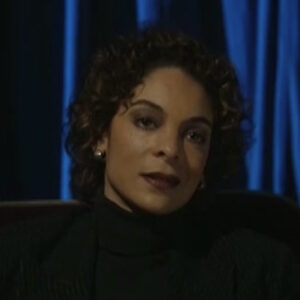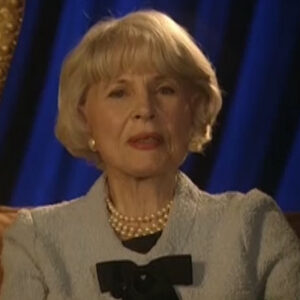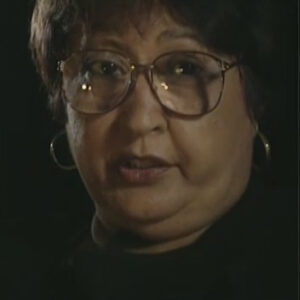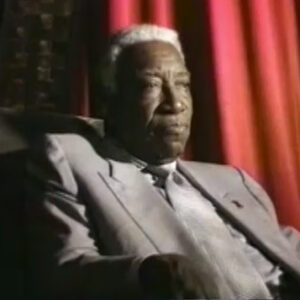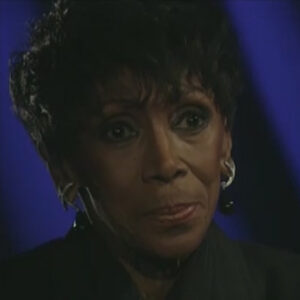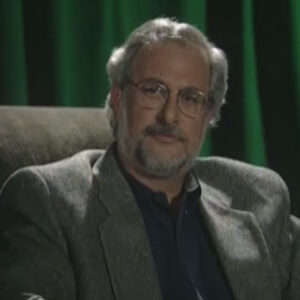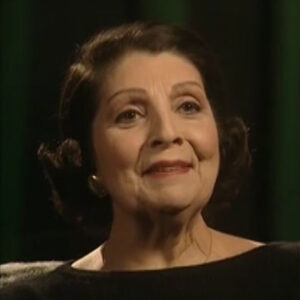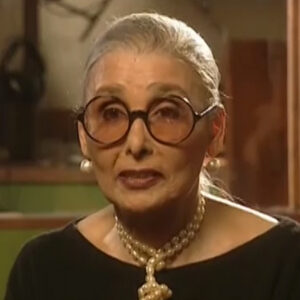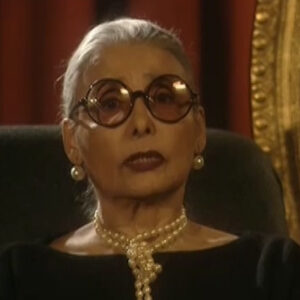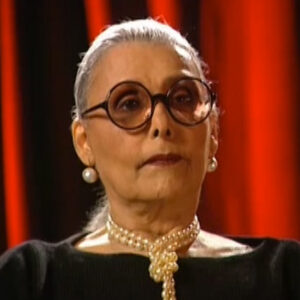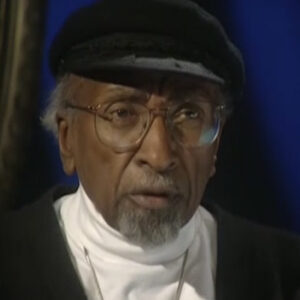Speaker My first meeting with Lena Horne was in the Tivoli movie theater in Fort Worth, Texas, where I got a liberal education. The only other education I got was from the Southern Baptist Church I went to. But it was movies, of course, that impressed me the most. And as I was always taken to the movies by my own black maid, I would choose to sit up in the balcony where colored people sat. So Lena made a big impression on me to see this beautiful. Black woman and all these movies singing, and she was fantastic, of course, that’s the first time I saw her. I don’t remember exactly which movie it was, but I think I saw everything she ever made because I saw everything they brought to the Tivoli Theater in Fort Worth, Texas.
Speaker I don’t know if you were you may have been too young to notice at the time, but did it ever seem strange to you that she never got to speak?
Speaker I don’t I don’t remember that I mean, a lot of my opinions, you know, my remembrances of it now are all revisionist history acted on by finally knowing her.
Speaker And an incredible thing that I would ever know or and and by the things I’ve read and the things she’s written and said. So now, I was extremely aware of the difference between black and white people. They weren’t called black then that would have been an insult. But they had separate drinking fountains in the Tivoli Theatre.
Speaker So and also I remember that my maid, my nanny Burns, used to always say, do you want to sit downstairs, Mary-Elizabeth? Because I knew that little white children could sit downstairs with a colored maid, but I would always choose to go to the balcony. I just found everything about the whole difference in race is so fascinating.
Speaker Fast forward to the moment when did you actually meet?
Speaker Well, I met Lina, I don’t remember exactly when, but it was in the 60s when she and Lainey moved to New York, I guess she’d been on the road a lot. And they have had a home in Los Angeles and they moved to to New York and they had a big apartment up on West End Avenue. And I was taken there by people that I knew in show business like Kaye Ballard and finally the agent, Gloria Saffar.
Speaker And I was taken there and just fell in love with Lena. And she put up with all of my foolishness of wanting her to talk about making movies and being a Hollywood star, which she didn’t like too much of.
Speaker Now, you fell in love with Lena, what was the fall in love with, what was she like?
Speaker You mean in person? Well, of course, I had a lot of the glamorous movie star Lena in my head and she was in person, so just as every bit as ravishingly beautiful and languid and glamorous. But she pushed all of that aside. So I think I had a really early experience in seeing how much movie stars are big singing stars want to just be regular people in their private lives. And this was a very private kind of private life. I mean, a real mixed bag of people, about half black, half white. She had pug dogs then and we would go up there to the west end of Avenue and have these incredible soul food dinners. And we would talk about also what it was like to be Southern. And she used to always kid around with me a lot. And I would make a lot of jokes about being poor white trash, which she thought was very funny. She or she pretended she thought it was funny. Actually, thinking back, it must have been extremely tiresome. I was just one of hundreds of white people she met who couldn’t just relate to her as a person, but related to her primarily through some different strange difference in our black and white status.
Speaker Yes. Did she do any of the cooking? You know, I don’t think she did.
Speaker I don’t I don’t believe she actually did it herself. She had a lot of people around. I don’t know who they all were.
Speaker And she and Lenny were very good hosts and they were crazy about the dogs and almost obsessed with these dogs.
Speaker And I remember mostly we just had a lot of jokes and too many drinks, and sometimes people would send Laina from someplace in the south, what they called white lightning, which I don’t know if people know what white lightning is, but it’s a very powerful form of, you know, bootleg liquor and very high proof.
Speaker And we used to kid around about drinking white lightning, how to manage cars and mason jars. We were really stuck on ourselves that we had some kind of southern experience. You know, Lena had been dragged up through the the factsheet presented of her life, the events of her life or so. It’s so extraordinary. She had been dragged up through the north, the south and everywhere. But, you know, the west. And I guess in the end, the west California was her final. Humiliation, she had had so many incredible experiences and it seemed that she sort of took a certain comfort in looking back on her southern roots. So we would always do a lot of Southern talk, you know, what they call kicking and kidding around and telling terrible jokes and. I don’t know, she was just she was just a very. Compelling and beautiful and glamorous figure to me. I always try to get her to talk about movies and she would, but.
Speaker It took me a while to adjust to the fact that this had been a really bitter period in her life and I don’t know, took me a long time to understand it. I guess I just thought if you were a movie star, what did you have to complain about? But, of course, the way Hollywood used Laina, she had a lot to complain about.
Speaker Was she at first when you asked her about.
Speaker I think the thing was, I was sort of just a dumb kid from Texas, I knew a lot about the South because my mother was from Mississippi and she was always real curious about my mother and would always send my mother her best wishes and everything. And even when my mother was right before my mother died at age 95, I remember Lena sending her greetings and love writing her something. I mean, she was very sweet about other the ways other people had grown up. And I told her all of my experiences with all of the black people in my childhood, which were of course all that.
Speaker I was this privileged kind of little white kid and they were both the only people I ever encountered, of course, were yardman and. People who worked in your house or were cooks or but Leno is avid for all of this experience, I think she had to put up with a lot from her southern. Friends like me, I mean, a lot of our insensitivity things just weren’t. As revealed to us then, we were still living in the moment before the Civil Rights Act took on so much meaning.
Speaker I’m really touched by how much she connected with your mother. The idea, yeah. Did you leave this alone? I don’t.
Speaker You know, I honestly don’t remember. I think I did meet her and I don’t think she was too interested in all of us trashy little people on the fringes of show business who were just there eating and drinking llena and lineis largesse.
Speaker But I don’t have a serious memory of her mother, but she sure was interested in my mother because she knew my mother had been a real Southern belle. And I remember once I told her a story about my mother being born in Oxford, Mississippi, and I had said to my mother, well, mother, you know, Oxford is the home of the greatest American writer, William Faulkner. And my mother said Faulkner felt, now, honey, I don’t think we knew any falconers. And those were the kind of stories about the South that just gave Lane a big boot. I mean, she just saw how ridiculous that whole Southern culture was. I mean, she had had it in spades, of course.
Speaker Oh. Tell me you saw her at the border.
Speaker No, I didn’t, because I didn’t arrive in New York until 1949, so I don’t think I saw her in the Waldorf.
Speaker OK, well, if I saw her, I don’t remember, I saw her many, many times, the most memorable time I ever saw her was in San Francisco long after that and.
Speaker I will never forget being invited after I guess it was the Fairmont or some big hotel, and I was with the agent, Gloria Saffar, who was a friend of Leena’s, and we were invited to a party after and I never forget this, we were the only white people at this party and this was the most elegant.
Speaker Upper middle class crowd of fabulous looking black people I’ve ever seen, and Linda was in a transformation then. From her earlier self, she had she had been, I think, sort of struck down like Saul on the road to Damascus, I don’t know if this was before Medgar Evans was killed. But certainly was a memorable time, and I remember she gave an almost bitter. Bittersweet kind of performance, I remember she sang Strange Fruit, and that was. You know, a really shocking, shocking song about about a lynching.
Speaker I’m sorry, I just don’t remember for sure whether I saw in the world or not, I probably did. If it was the early 50s, I was lucky and I got dragged around, taken to everything.
Speaker The winner before the strange fruit, when you saw him perform, would you characterize?
Speaker Oh, I don’t know, she was just unbelievable. I was just thinking when I went to see her show on Broadway in 1981. I was just thinking how many times I’d seen her in person in nightclubs and and different places and how always she was, she never let down. She was absolutely electrified by performing, no matter what she said against it. You see, one of the things that struck me early on when I was just first meeting her, when I went up to West and Avenue was taken, was that she was she surprised me by how cynical she was about show business and everything. And she still keeps this. Same thing, this cynicism. She’s very sophisticated, she’s. Sort of impatient, she shrugs off her triumphs and OK, you thought she was great when you saw her wear at X, but she thinks she was just it was just another night. But honestly, I never saw her perform. She wasn’t just full blast. The greatest thing every time I saw her. I think this is the greatest thing I’ve ever seen. And when I wrote about her performance in on the Broadway stage in 19, 1981, that incredible 18 months where we all kept going back again and again, spending all of our money, buying tickets to see her over and over again, I think I had one friend named Elaine who went about 22 times. I would always think she was greater than she’d ever been before, and I wrote that I felt that her performance was as great as any any of the greatest opera stars who ever lived. Nobody ever gave a performance greater. But I remember all of her performances like that.
Speaker Well, one of the things that struck me as I watched. What things have struck me before Lady and her music was there was the kind of. Melts away during remaining moments became. Did you see it?
Speaker Well, you’re you’re suggesting something to me that sort of rewriting what I just said.
Speaker Yes, I think but I think there I think that there have been two Leanna’s and I think that everything after the death of Medgar Evans was very different for her. And then she went through this real period, as you say, of of having well, like this time I saw in San Francisco. I’m telling you, her performance was bitter. It was controlled, it was bitter. It was great. But it was scary. And I took a sort of lesson from it later when I went to this party after and found myself one of two white people in a room full of people. And I thought, gee, this is what life is like for black people all the time. They’re always the minority in a room full of. White people, I mean, in real life, you know, so I think she has had an amazing transition no matter what she probably say she hasn’t. But there was a big difference. And a lot of her white friends suffered a kind of banishment or they felt it was a kind of banishment. As far as I think Leanna became really embrace the civil rights movement and. Tried to, you know, shuck off anything she’d had in any ambivalence she’d had in the past about being black, I don’t know that she did have any, but I’m just assuming that she did.
Speaker But when you say she sort of checked her white friends, is it that she didn’t call anymore?
Speaker We went through a period after, you know, she was as you know, someone will have said that. She was with Medgar Evans only a day or something before his death and this and I am assuming that this had a profound effect on her, though I’ve never really discussed it with her. I just never have had the heart and. I know then that she. I felt she sort of stopped seeing her white friends for a while and it went on for a few years. I think she would really then plunged into the civil rights fight. I’m not trying to say she hadn’t been in it all along, I’m just saying that the death of this man had a profound effect on her, but nobody was kidding, you know, and. And then she sort it all out, we all sort of regrouped and. We went we went back to normal, I guess, as far as just being friends. We all. I guess we all tried to forget what color we were. I wasn’t, because it seems to me they had gone back to California then, but I’m just not certain there were a lot of sort of, you know, there were some traumatic periods, personal periods. And Lena’s life, like the illness of her son, Teddy, and I just wasn’t really around for that. I mean, I don’t really remember. She would just I just heard that she and Lenny were splitting up. And I guess I wasn’t surprised because I knew they had been sort of apart. I felt in a funny way, they were still devoted in spite of everything, but I can’t really comment on it because I don’t recall anything specific about it. She never discussed it with me. She never said a word against Lenny to me. When you were.
Speaker When you were together with them.
Speaker I. I always thought that she wasn’t paying too much attention to Lenny, that they were sort of they were together, but they were separate in a way socially. I didn’t she wasn’t always asking him questions. They weren’t affectionate that I ever saw. He was very kind of quiet. And I just felt that he had had this. I know he had this profound effect on her, but it was a world.
Speaker Lennox was a world of music, I mean, it was a moment for jazz and swing musicians and musicians dealing with all this fabulous popular music out there, and that was a world of its own. And I don’t know that I ever felt Lennon was too interested in anything outside of this music world. But Lennon was interested in a lot of things, and she was interested in making new friends and young friends and so forth. And I thought and I thought Lenny just sort of tolerated all of us.
Speaker We thought it was interesting that a lot of things and if anything.
Speaker Well, she liked gossip and fun and jokes and and she loved reminiscing and you know how people are in show business. I mean, these were all the fringes of show business. I was on the fringes of it. I was either working as a press agent or associate producer on television or something, and she wanted to hear everything that was going on. And I was amazed that recently I had dinner with her, Kate Ballards, one night during the O.J. Simpson trial. And Lana was just avid to know everything. We all thought about it. She was watching it very closely and. I thought, gee, she hasn’t really changed much. She’s just the same Lena. Mostly liked a lot of jokes and remember when we did this, and then she would always revert way back into her real Southern accent. She’s got a great Southern accent that she can make come and go.
Speaker Have you ever seen her angry?
Speaker I’ve seen her express herself in sort of bitter or sardonic or cynical ways, and but mostly, I think those flashing eyes, she saves that for the stage.
Speaker You know, one of the things I was struck by when you talked about, you know, in our conversation is the. Difference between the llena on stage.
Speaker I think this was that is one of the most extraordinary things about her. I think like a lot of women who have found themselves hit on continuously, as she must have from the time she was 16, maybe younger. And on into those glamorous days at MGM and all of these movies where she was good enough to stand in front of a column and sing, but not good enough to be allowed to do anything, act or be a real person, I think she always was very rejecting of her sexuality. She was contemptuous of this kind of glamour girl. You’re really hot stuff. You know, you can never pin her down to it. That’s what I wanted to talk to her about all the time. You know, is Lana Turner really so sizzling? Is Ava Gardner really like that? What about you? You know, all that Lana couldn’t care less about that. She was always sort of she would sort of become her house for good. Mother self, as she is, was is a wonderful mother and a great grandmother to her. Beautiful grandchildren, so I always felt she was more interested in the domestic side of her life and that she had sort of made that work in some respects, that was what she was proud of. And I always felt she used this erotic sexuality, sensuality as almost on stage, like a weapon, like she would just build the audience up to a fever pitch where they all wanted to run up and tear her clothes off their butt and then she would back away. It’s a great gift.
Speaker I mean, it made her a real, real glamorous sex symbol, mysterious, erotic, all of the things that she’s just totally contemptuous of that give me some more black eyed peas and collard greens would be her thing, which she would lapse back into her southern thing, you know, which was another thing she was making fun of. She knew what the South was.
Speaker Did she, did you? Did she ever talk to you about her family and.
Speaker You know, I don’t remember ever hearing her talk about it. She may have, but I mean, all of that stuff I’ve read and know I know from, you know, following her, asking her friends, Sinclair Pugh, who knew her very well in Paris and. And has known her for years, and he is now my associate and my work and has been for a long time. Things I know so much about Leanna that she’s never told me. Now, our relationship in a funny way, I guess our relationship has been very superficial, but it meant a lot to me and she’s always just been great to me.
Speaker What did she ever mention to you?
Speaker She’s joked about it a lot, about a week of.
Speaker And the effect it had on her. I don’t know. I don’t know this sorry. It’s just a thing I don’t know about. You know, one of the things I was laying on, I have a wonderful little thing. I mean, she always calls me Mary Elizabeth, which is my name. Then she always finds her. He’ll know her real name.
Speaker Lena Calhoun, you know, she is just so cute. Never forgets my birthday. Have you ever seen her with her grandchildren, her great grandson? I’ve never seen her with her great grandson. I have seen her with Amy and Jenny and. Of course, her wonderful daughter is not a good friend of mine. I admire them. I think she accomplished something great with those. Girls.
Speaker When you hear about something you had said about if only we were down.
Speaker Well, I don’t remember, as I’ve already said, we had an awful lot of kidding around about the South, the South became our connection with two women who understand each other. That’s the kind of thing, you know, Lena would say, of course, I didn’t understand anything much. Took me years to. Understand where I was, what I thought, just like women’s liberation, I was late and I guess my real appreciation of what?
Speaker I got a real sense of injustice. In college, when I was in the University of Texas and I became an agitator to have a black man admitted to the graduate school of the University of Texas, and we did get him admitted and it was a real crack in the door. But, my God, it was such a stupid little accomplishment and. I didn’t really understand, Lena, for, you know, for those earlier years when I knew or to me she was just someone so glamorous and talented, but then I would have perceived her more and more as a great woman through all of this, a person who lived through these cataclysmic, horrible times where she was both privileged and then tossed aside and. She she would say she was privileged because, you know, a lot of people were exploiting her talents and I think that’s true. I think her experience in the movies was just incredible. I mean, that she she was friends with Ava Gardner and then she had to stand there and watch them give this role and showboat to Ava Gardner. And they had to invent a makeup for a gardener to make Ava Gardner look like Lena.
Speaker That incredible story.
Speaker She never stopped loving, but she didn’t blame over if it was just another Southerner that she loved in the same way that she loves St. Clair, Puan and and she tolerated us for with all of our prejudices and things we didn’t even know we had.
Speaker When you. From the wait, what do you think she married money for the way you describe their relationship?
Speaker Well, of course, I didn’t know them in the beginning and I didn’t know them when I think he took her very much under his wing, he gathered her into this thing. I’ve tried to express already this great jazz musician world, which I don’t know, but it’s like a club was like a closed.
Speaker Aspect of show business, I mean, even show business people can get into it, if you weren’t a musician, you didn’t know what they were all talking about and they were, you know, experimenting with drugs and stuff like that, I don’t mean us, but I mean, the whole jazz world was very exotic in the 40s. And I I think Lena may have perceived herself at that time as a as someone who wouldn’t be able to exist in films if she didn’t have somebody to protect her. And of course, she and Lenny were maybe both of them were kind of attracted to the fact that they knew what they were doing, their relationship and their marriage was going to be an offence to so many people as possible. They wanted to give some offense. The world needed that offense. And as it turns out, it was just one little. One little example of how these walls between blacks and whites had to fall. So it was very courageous. I think there were a lot of elements to her attraction to him rebellion, the need to be protected, a kind of realization that she probably would never make it in a white world and. She needed him, maybe she and and maybe she really loved him, I always felt she remained devoted to him in concept anyway.
Speaker Now, you were talking about some of those wonderful qualities they had when he was famous for his martinis.
Speaker I don’t I don’t remember it, white lightning is the thing I remember drinking with Lehman, you know, almost killed me.
Speaker I also want to ask you about Kate Ballard.
Speaker Yeah, well, I was working for Kate Ballard, and I’m sure that’s how I met Lena.
Speaker I was working for her manager, Pete Cameron, and then I went on the road with her to sort of keep her on track. This was the blind leading the blind and she was off going to Chicago to do top banana. So I learned a lot from Kaye Ballard. And I think I began to pick up the real lingo of show business.
Speaker And all of the inside stuff that seemed to me was one of the reasons I ever met Lena. Anyway, all of these people knew each other and they like to hang out with each other. And there was a lot more tolerance, of course, for Lena and Lenny in show business and aspects of show business. I don’t think that was true in the movie world, but certainly in the legitimate theater world and in the and then the New York music world, you know, that revolved around Birdland and Dizzy Gillespie and all that stuff and the world.
Speaker We all sort of lived in post-World War to the 50s into the 60s. I, I find legitimate theater people so much more tolerant of that and playing and living. They needed they needed our friends. And I think they clung to the people that they met in the in the theater.

